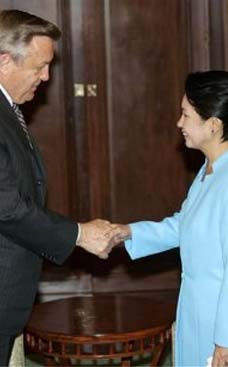2007.07.25: July 25, 2007: Headlines: Figures: COS - Dominican Republic: Congress: Legislation: Senate Foreign Relations Committee: Senator Chris Dodd's Hearings on S. 732: The Peace Corps Volunteer Empowerment Act
Peace Corps Online:
Peace Corps News:
Special Reports:
July 25, 2007: Senator Dodd's Hearings on the Peace Corps Volunteer Empowerment Act:
2007.07.25: July 25, 2007: Headlines: Figures: COS - Dominican Republic: Congress: Legislation: Senate Foreign Relations Committee: Senator Chris Dodd's Hearings on S. 732: The Peace Corps Volunteer Empowerment Act
Senator Chris Dodd's Hearings on S. 732: The Peace Corps Volunteer Empowerment Act
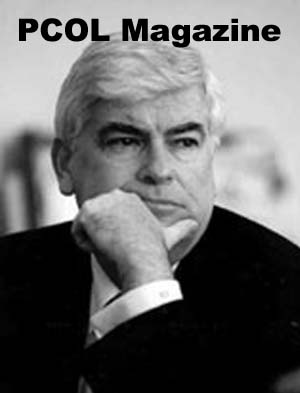
Read PCOL's executive summary of Senator Chris Dodd's hearings on July 25 on the Peace Corps Volunteer Empowerment Act and why Peace Corps Director Ron Tschetter does not believe the bill would contribute to an improved Peace Corps while four other RPCV witnesses do. Highlights of the hearings included Dodd's questioning of Tschetter on political meetings at Peace Corps Headquarters and the Inspector General's testimony on the re-opening of the Walter Poirier III investigation. Senator Chris Dodd of Connecticut served as a Peace Corps Volunteer in the Dominican Republic in the 1960's.
Senator Chris Dodd's Hearings on S. 732: The Peace Corps Volunteer Empowerment Act
All Photos: Courtesy of the office of Senator Dodd taken by Adam Wells
Highlights of the Opening Statement by Senator Chris Dodd

In order to ensure that the Peace Corps is well prepared to carry out its mission in the 21st century, it’s important from time to time to assess how effectively Peace Corps management and staff are recruiting, training and serving volunteers as they carry out the core missions of the agency. It also means exploring ideas and suggestions for changing the way the Peace Corps operates, if that will enhance the ability of volunteers to carry out the goals they are charged with in statute. And it means finding ways to expand the reach of the Peace Corps at home and abroad by providing additional resources and doubling the number of volunteers to give it more fire power to do so.
This bill set out a very ambitious list of issues to begin to explore ways to strengthen the volunteer experience. I stress the word “begin,” because this bill is meant as the jumping off point for discussing how the Peace Corps can do better, not the finish line. I am somewhat disappointed that the testimony by the Director doesn’t seem to reflect that understanding. I would also have to say that I believe that no matter how well an agency or program is functioning, there should always be an open mind to how it can be made more effective. I hope over the course of this morning’s hearing that is the mindset we will allow adopt.
Read the rest of this statement in more detail.
Highlights of Opening Statement from Senator Bob Corker, Ranking Member of the Subcommittee
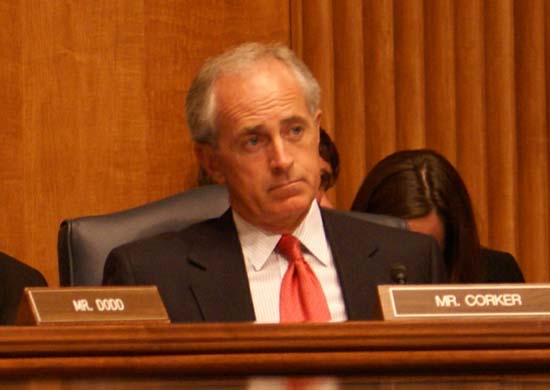
Senator Bob Corker of Tennesee is the ranking member of the subcommittee and he said in his opening statement that he would be more informal, that it was an honor to serve on this subcommittee with Senator Dodd, and that he appreciated the background that Dodd brings to the subcommittee as someone who has served as a Peace Corps volunteer.
He added that in his own life, going out of the United States and and offering assistance to another country was one of the experiences in his life that motivated him to enter public service and become a Senator.
Senator Corker added that Senator Dodd has brought forward some legislation and he liked the way that Dodd had characterized it as a discussion point. Corker added that there is always a balance that needs to exist between running an organization well, management objectives, and at the same time taking into account the many people that make the organization so great.
Senator Corker told Peace Corps Director Tschetter that he had read Tschetter's statement several times in the last few days and that in so many of the hearings we have in the Foreign Relations Committee there is a lot of diplomacy and talk that sometimes doesn't mean a great deal because people are being so nice to each other but that Senator Corker looked forward to hearing Tschetter's testimony and that reading his testimony that Tschetter had been pretty clairavoyant in some of the criticism he had brought forth.
Read the rest of this statement in more detail.
Highlights of Statement by Peace Corps Director Ron Tschetter
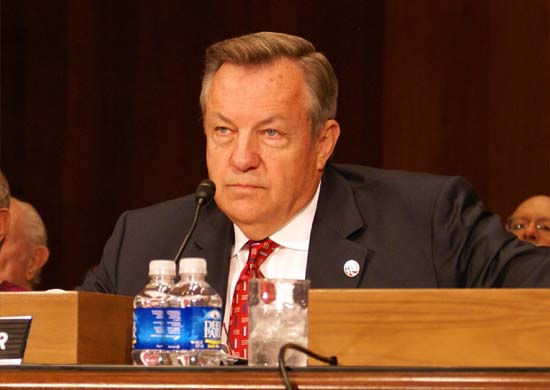
From my perspective as an RPCV, the former chairman of the NPCA, and the current Director of the Peace Corps, it is evident to me, after a thorough analysis of this bill, that those consulted in its drafting believe that certain parts of the Peace Corps are broken. Well, I am here to tell you that the Peace Corps is actually thriving. In fact, in our recent Volunteer survey 74 percent of Volunteers reported that their service was personally rewarding, 84 percent would recommend Peace Corps service to others, and 95 percent said that they have been personally successful in meeting the second goal of the Peace Corps of helping people from other cultures better understand Americans. Moreover, the Peace Corps is a relevant and vital agency with a strong sense of purpose and one blessed with a dedicated and energetic staff, many of whom are RPCVs. With that being said, I also realize that we can do better, and the initiatives that I have just outlined for you are intended to provide for an improved and more vital Peace Corps. As I strive, along with my staff, to build upon the past successes of the agency, I welcome and embrace constructive efforts that would contribute to an improved Peace Corps.
Quite frankly, I do not believe that S. 732, with its constrictive provisions, would contribute to an improved Peace Corps, and let me explain to you why I believe that: While the legislation may have laudable intentions, many aspects of the bill would: 1) create unforeseen administrative burdens and consequences; 2) raise significant safety and security concerns; and 3) would be costly for the Peace Corps to implement.
By mandating certain programs and initiatives, such as the development of 20 new sectors in 20 countries, it will hamper the agility of the agency to respond to changing circumstances or events, and lock-in funds to programs that may prove unworkable. In effect, this legislation would likely force the agency to close programs, reduce the number of Volunteers, and be locked in to initiatives without a proven track record. The agency estimates that the Peace Corps would see total Volunteers on board drop to approximately 6,000 in FY 2008, back to FY 1999 levels, and approximately 7,400 in FY 2009. Volunteer numbers would only begin to increase again in FY 2010, provided that full funding was received. Take for example, our work in HIV/AIDS. In the late 1980s, the pandemic of HIV/AIDS was just beginning to surface. Because of the flexibility in programming that presently exists within the Peace Corps Act, the agency was able to adjust its focus, work with host countries, and meet the challenge of the pandemic head on. Now 90 percent of all Peace Corps posts are involved in HIV/AIDS activities and in FY 2006, Volunteers provided assistance to one million individuals, over 84,000 HIV/AIDS service providers, and 3,800 organizations. Had the Peace Corps been locked into statutory mandates, the likelihood of the agency achieving this impact, at this magnitude, would have been lost.
This bill also raises safety and security concerns. The agency’s number one priority is maintaining the safety of our Volunteers, and we have undergone a tremendous number of changes in this post 9/11 world to ensure that they are as safe as they can possibly be. As such, I do not believe the bill, as currently written, is in the best interests of the Peace Corps and its Volunteers, particularly in pushing Volunteers to become fundraisers or grant makers.
With regard to costs, initial budget estimates find that the legislation could cost the Peace Corps between $20 and $30 million to implement. As the Committee may be aware, since FY 2003, the Peace Corps has not received the President’s full budget request for the agency. And, increases for the past two years have been relatively flat. While the FY 2008 House mark has met the President’s request, the Senate Appropriations Committee mark is $10 million below the President’s request. Therefore, even if the agency were to be authorized at the levels provided in S. 732, there is no guarantee that it would be appropriated such amounts in future years. Additionally, the President’s FY08 request of $333.5 million would simply allow the Peace Corps to maintain its current number of Volunteers in the field and perhaps open one new program. It would not enable the agency to accommodate any projects or programs of the legislation’s magnitude.
This bill would allow Volunteers to write articles for publication without their Country Director’s approval (unless it pertained to the Peace Corps program or the country, specifically). At this time, Volunteers/Trainees may write articles for publication; however these should be discussed in advance with the Country Director. Publication of material contrary to the advice of the Country Director that subsequently results in adverse consequences for the Volunteer/Trainee or the Peace Corps program may be grounds for administrative separation. Often seemingly benign comments made about the society, food, customs, or local community in which a Volunteer might serve could have an adverse reaction and affect the reputation of the Peace Corps in the country, or could even impact the safety and security of Volunteers. I would doubt that many Senators would allow members of their staff to publish material without prior approval. For even though that staff member may not be writing on policy issues, staff members are always a reflection on the Senator – whether on the clock or not. The same applies for a Peace Corps Volunteer.
Read the rest of this statement in more detail.
Senator Dodd asks Peace Corps Director Ron Tschetter about political meetings at Peace Corps Headquarters

Photo: Courtesy of the office of Senator Dodd taken by Adam Wells
Dodd: "The Washington Post reported yesterday that following the 2002 elections the White House conducted political briefings for ambassadors and peace corps personnel. Senator Biden confirmed that a political briefing took place at Peace Corps Headquarters and it was approved by senior government officials. It was not approved by the General Counsel.
I would like to know who specifically approved this briefing. Was it the Peace Corps Director? Was it the Chief of Staff? Did either of these two individuals attend the briefings? Was there guidance available from the office of the General Counsel? Was the General Counsel aware of the briefing at the time? Did he attend?"
Tschetter : "I am aware of the situation. Obviously it was before my time. When the letter was received from Senator Biden, I asked my Chief of Staff to research it. There is no list of who attended. I asked for that. No roster was kept or anything of that nature. This was a meeting for information, a courtesy meeting that was held, voluntarily for whoever wanted to attend. Most of them were people who were appointed politically to roles in the Peace Corps."
Dodd: "Was the General Counsel aware of this?"
Tschetter: "I don't know."
Dodd: "Has that question been asked?"
Tschetter: "That question has not been asked of me."
Dodd :"Was the General Counsel aware of the meeting?"
Tschetter: "Yes he was aware of the meeting."
Dodd : "Did he approve of it?"
Tschetter: "I don't know."
Dodd: "Did the Director participate in the meeting?"

Tschetter: "I believe that the Director did participate in the meeting, yes."
Dodd: "...and the Chief of Staff?"
Tschetter: "I don't know about that one. I have asked who attended but the answer is that we do not have a list. A couple of people have told me that they were at the meeting."
Dodd: "Who else was at the meeting?"
Tschetter: "The Director's executive assistant. I have talked to her and she was at the meeting and there were approximately fifteen people that were at the meeting from Peace Corps personnel."
Dodd: "Do you think this was an appropriate use of Peace Corps personnel?"
Tschetter: "It was a voluntary courtesy meeting. It was not a required meeting. It was held at the Peace Corps building, that is correct."
Dodd: "What is your idea of a political meeting held on Peace Corps property?"
Tschetter: "My view is that I would not condone that. I would not encourage that to take place, no."
Dodd: "In my experience, the idea that the Peace Corps Director and senior people at the Peace Corps would be involved in a political briefing prior to the elections would never have been tolerated in the past. I am not aware of any circumstance in the past where that has happened. I am pleased with your response this morning regarding it.
I think all of us regardless of political persuasion up here think this is just not appropriate activity for the Peace Corps. We have tried over forty years to maintain the reputation of this organization and almost every administration without exception has made an effort to do that until this administration.
I am deeply, deeply troubled by it and I would hope that there would be, maybe some directive to Peace Corps staff and others admonishing anyone from engaging in political activities like this on Peace Corps property. The reputation of this institution suffers when that happens.
We have a reputation and we have a good one over the years and to have it soiled because people want to turn it into a political operation is something that I am not going to tolerate at all and I will call for heads if there are still people there involved in this. They should know better than this, to engage in that kind of activity."
Tschetter: "Thank you and I concur with your opinion that this should not have happened and I will not condone it and I will look into the possibility of having the General Counsel send out a directive that will be appropriate at this time."
Dodd: "You might want to send a letter to Senator Biden or to me expressing those views.
Tschetter: "Ok"
Dodd: "And I would like to know if there are people at the Peace Corps today who were involved in those meetings. I would like to know who they were and I would like some explanation from them on why they attended."
Tschetter: "Let me go to work on that and I will get back to you."
Read the rest of this statement in more detail.
Highlights of Statement by Former Peace Corps Director Mark L. Schneider
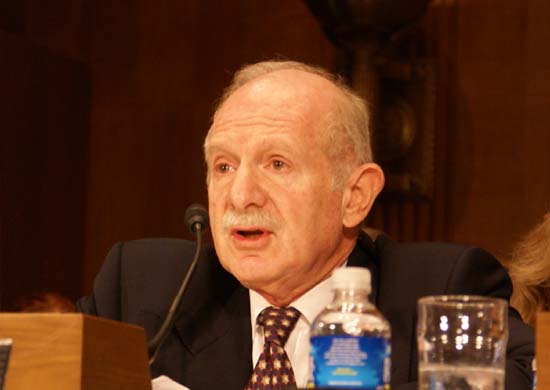
Show me the money: The first indispensable element in the bill is its authorization of the necessary growth in funding in FY2008, through FY2011 to permit the Peace Corps to reach that goal. It is a goal that President Clinton enunciated and that President Bush has supported. Simply stated, the resources have not matched the rhetoric. This bill provides the authorization. I hope that the committee also will act to see that the first year’s appropriations of $336 million, as passed by the House of Representatives in the FY2008 State-Foreign Operations Appropriations bill will be the final mark when the measure goes to the President for his signature.
Empowering Volunteers is crucial because the Peace Corps is about Volunteers, not staff. The role of staff in Washington and in the field is to find ways to enable Volunteers to succeed. By the way, most staff—many of whom are returned Volunteers—would agree.
I have personal experience on selecting sites, since my wife and I extended for several months specifically to survey all of the existing communities in a public health program to check with Volunteers on potential living quarters and work conditions. As Director, I urged that Volunteers be part of the process of evaluating which existing sites and programs should be expanded or replaced. The legislation would mandate that requirement.
On the health side, while reforms to the medical screening process are important to every incoming applicant, they are critical with respect to senior Volunteers. I think the specific provisions provide for greater transparency, greater due process, and greater fairness. By publishing the medical screening guidelines and process with full disclosure, enabling changes to be proposed, permitting appeals, and reimbursing for medical tests required by the Peace Corps, the system will improve.
Today’s Peace Corps Volunteers also are helping people in developing countries take part in the information technology revolution that all of us now take for granted. They are bridging the digital divide by helping local entrepreneurs create web sites to market their goods over the Internet, helping extend health data bases and training teachers to develop computer literacy programs. That is why the provisions of this legislation to promote the digital Peace Corps internally are so essential. I am convinced that there can be a vast expansion of public/private partnerships with AOL, Hewlett Packard, Google, and others in the dot.com community. We had initial grants of technical support and equipment worth more than a million dollars to use information technology when I was director. That program clearly can be expanded.
Read the rest of this statement in more detail.
Highlights of Statement by David Kotz, Inspector General of the Peace Corps
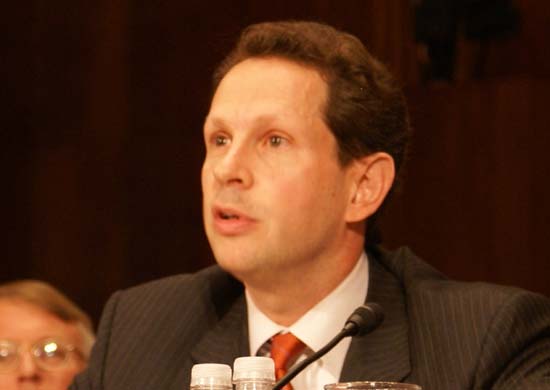
This study that our office is conducting is the first of its kind, and also marks the first time that the Peace Corps has received the Office of Management and Budget approval to reach out to a subsection of the general public, applicants who entered the Medical Screening Process but did not become Peace Corps Volunteers, to survey them about their experiences in the medical screening process. The Office of Inspector General recognizes that this population of former applicants is a rich and untapped resource for identifying strengths and weaknesses in the Medical Clearance System. Through their responses, we hope to gather data unique to this group of applicants, which will yield findings and recommendations that will improve Peace Corps’ applicant retention during the Medical Clearance System.
And perhaps of greatest concern, our study has found that several of our recommendations for improvements to the Medical Clearance System were recommended in prior reports dating back to 1992, were accepted by the Agency but were never implemented.
We applaud Senator Dodd’s office for the concern with applicants’ ability to obtain information on their likelihood of being medically qualified by the Peace Corps before they spend significant sums of their own money on required medical exams and tests. We also agree wholeheartedly with the concerns that have been expressed regarding the out-dated nature of the Medical Screening guidelines. These guidelines must be reviewed at a minimum annually to ensure that they represent the most currently available medical evidence. However, posting the Medical Screening guidelines online is not the best solution to providing applicants with answers to their medical screening concerns, nor it is necessarily the best in our opinion. The medical screening guidelines are a tool for making complex medical decisions used by medical professionals. If the medical screening guidelines were posted online, it could lead to applicants without medical backgrounds misinterpreting their eligibility and actually lead to more confusion on the part of applicants. It also has the possibility of resulting in the Agency unnecessarily dissuading perfectly able, healthy and productive applicants from becoming Volunteers. Further, telling the applicants the answers they need to give in order to be medically cleared may encourage and invite fraud, which would, in the end, jeopardize their health and safety in the field. In our view, applicants would receive the most accurate answer of whether or not their particular condition will preclude them from serving in the Peace Corps by having the opportunity to speak to a screening nurse, rather than by reviewing the information online.
We applaud Section 306(b) of the Bill that increases whistleblower protection for Volunteers reporting the misconduct of Peace Corps staff as we feel that as much protection as possible should be provided to these whistleblowers. Because of their status as Volunteers and not employees, currently Volunteers are not afforded significant protection from retaliation for their whistleblower claims. Whistleblowers provide a great deal of critical information to our office with respect to the inner workings of the Agency and we need to make sure Volunteers are protected when they provide this important information. Very often, our information comes from whistleblowers and complaints and our Office would not be able to prevent waste, fraud and abuse in the Agency without the help and support of Volunteers acting as whistleblowers.
We also applaud the Committees’ efforts to give the Volunteers a larger role in evaluating various aspects of the Peace Corps. When the Office of Inspector General conducts evaluations, we focus entirely on the opinions and viewpoints of the Volunteers, as they are the life blood of the Agency, and we uniformly uncover critical information regarding their sites, programs, projects and the abilities of the Peace Corps staff in country. We believe that Office of Inspector General inspections should not be the only mechanism for Volunteers to share their view and provide feedback concerning activities at post. It is our opinion that the Agency should become even more Volunteer-centric and provide more opportunities for the Volunteers to be involved in the decision-making process. Encouraging the use of the Volunteer Advisory Committee is an excellent idea. We also concur with the Bill’s efforts to provide more Volunteer involvement in site selection and personnel aspects of a post. The Volunteers’ viewpoints and feedback must be considered when the Agency makes important decisions concerning site selection, training curriculum and personnel evaluation at post. Within Section 201 of the Bill, there is a provision that these upward reviews and surveys of Volunteers be provided to various Agency officials. We concur with a proposal expressed by others that our office also receive the results of the upward reviews conducted by Volunteers on senior staff and programs. We too believe that this will be a source of valuable information and enhance the effectiveness of the Inspector General’s Office in improving Peace Corps management and programs.
Read the rest of this statement in more detail.
Senator Dodd asks David Kotz about status of the Walter Poirier III investigation

Senator Dodd asked Peace Corps Inspector General David Kotz about the status of the Walter Poirier investigation.
Mr. Kotz said that the investigation had been reopened about 6 months ago.
He said that the office of the Inspector General is in charge of the investigation.
He said that the investigation into the disappearance of Walter Poirier III in Bolivia in 2000 is the number one priority in the Inspector General's office.
He said that he had contacted the National Park Service and asked them to help the Peace Corps in their investigation.
He said that members of the National Park Service are experts in the field of searches in the wilderness.
He said that members of the National Park service had already gone to Bolivia.
Senator Dodd asked if the FBI had been involved.
Mr. Kotz replied that they had gotten documentation from FBI on this case that had not previously been provided.

Mr. Kotz said that there is a renewed effort in this case, that there will be a targeted search beginning in September, and that Mr. Kotz personally contacts Walter Poirier Senior on a bi-weekly basis on how the case is going forward.
Mr. Kotz added that Peace Corps continues to make every effort we can to search for Walter Poirier III.
Senator Dodd asked how helpful the US Embassy in Bolivia had been in the renewed search for Walter Poirer III.
Mr. Kotz replied that the Peace Corps has had a couple of issues with the US Embassy in Bolivia but at this point the Peace Corps has told the embassy that we don't need their assistance. We will continue on this on our own. We would only ask that the embassy not be an impediment in the search process and that he hopes we will not have further impediments in the search.
Senator Dodd said that he would draft a letter to the US Ambassador in Bolivia asking for their support and cooperation and that he is sure that other Senators such as Senator Lugar, the ranking member of the Senate Foreign Relations Committee, will add his signature to the letter.
Read the rest of this statement in more detail.
Highlights of Statements by Chuck Ludlam and his wife Paula Hirschoff, Peace Corps Volunteers in Senegal
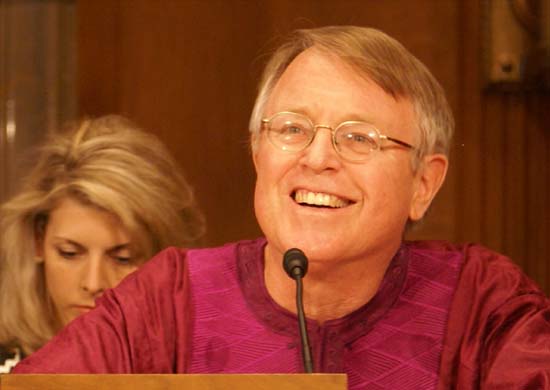
We wish we could report that all is well with the Peace Corps, but we regret to say this is not our view. We see the Peace Corps as a middle-aged bureaucracy where hierarchy and rigid controls prevail. Volunteers sit at the bottom of the pyramid where their needs are often ignored. What we need is an upside down hierarchy, an inverted pyramid, in which support of the Volunteers takes precedence.
We have also compared the Peace Corps bureaucracy to the one we knew in the 1960s. In many ways it has become more risk-averse and less responsive. It often fails to listen to, respect or empower the Volunteers. We hear from Volunteers in the field who believe that they succeed despite the bureaucracy, not because of the support that it provides. They succeed by ignoring or resisting it.
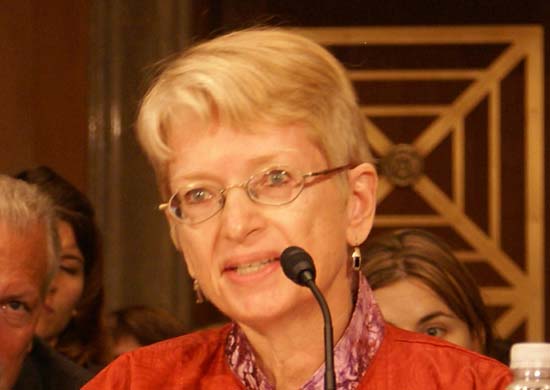
Turning now to the specifics of the bill, the key provisions give Volunteers a substantial voice in personnel and program reviews, training curricula, and site choice and preparation. The legislation is premised on the notion that the expertise needed to strengthen and renew the Peace Corps lies at the grassroots, with Volunteers in the field. Volunteers know best who is supportive among staff. They know what programs are working well at the village level. They know what they need in terms of training and seed funding. They know what village sites are best suited to Volunteers. The legislation would have the Peace Corps rely on their expertise in these crucial areas.
Given the problems we'd discussed, you may wonder if we recommend that older persons and RPCVs serve as Volunteers. Our answer is, "Yes, absolutely." Older and second-time Volunteers often have special insights into how to launch and sustain development projects. Also, older Volunteers tend to speak up about the quality of staff support, program design, training curricula and site placements. In our view, the more older Volunteers the Peace Corps recruits, the better—both for development and Peace Corps reform. To be clear, you will substantially strengthen the hand of the Volunteers, the young and not-so-young, and the cause of Peace Corps reform if you enact this legislation into law.
Read the rest of this statement in more detail.
Highlights of Statement by Paraguay RPCV Kate Raftery, Country Director, Eastern Caribbean
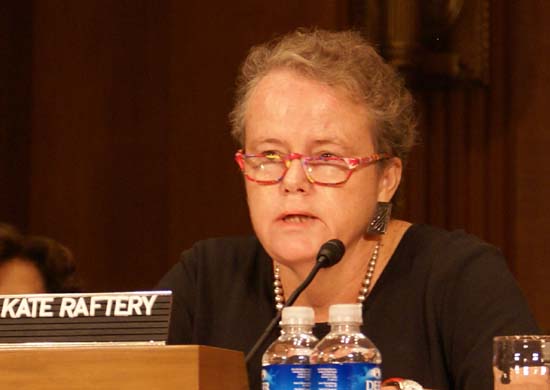
Many Volunteers feel that external funding flies in the face of sustainable development. Dependency on outside support can potentially hinder indigenous development from thriving. If getting the grant is the end goal—then there is a problem. The end goal must be the empowerment of a community, an institution, or an individual to identify their own dreams, possibilities and then bring that to fruition through hard work, strategic planning, and realistic financing. The end goal is the development of a skill set that will matter and enable a host country community or individual without an abundance of resources— or bureaucratic strings attached—to accomplish a specific objective.
Each Volunteer needs to feel confident that they will have a voice and a forum for expressing opinions. I personally involve Volunteers in the most important activities which take place at post. I remain mindful that they did not come to country to run the Peace Corps’ operations, but to contribute to the development of their country of assignment. My requests for input, I hope, are strategic, transparent, and appropriate. Volunteer input requested respectfully, sincerely, and transparently has never disappointed me. But at the same time I will very honestly and directly point out to Volunteers that at the end of the day they have one reason for being in country and I have another. I am the “hired help” and they are the Volunteer. When a problem arises the Peace Corps Director will not be calling them for an explanation, he will be calling me. Let me share with you some of the ways that I involve Volunteers in our operations as illustrations as to the incredible value added that can result from the Volunteer contributions.
The Volunteer Advisory Committee (VAC) is one of the most important ways for any Country Director to thoughtfully and appropriately engage Volunteers. Whenever I am reviewing policy documents, considering new regulations, or facing issues with the Volunteer community I turn to the VAC. Again, I have never been disappointed in the performance of the VAC. We share the strong desire to support Volunteers, maintain the Peace Corps’ institutional reputation in the country, and make any policy or procedure transparent and reasonable.
Read the rest of this statement in more detail.
Highlights of Statement by Thailand RPCV Kevin Quigley, President, National Peace Corps Association
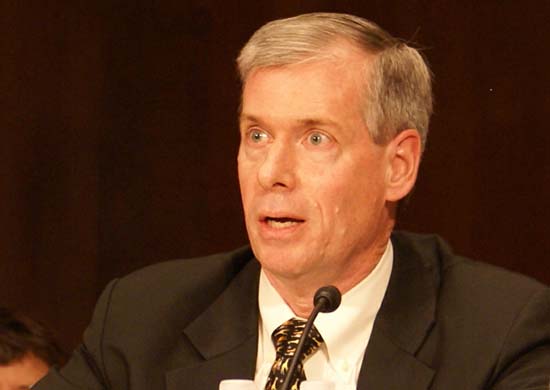
This small size is not because Peace Corps has solved the problems it was created to address, nor is it ineffective, nor is there is insufficient demand from countries or potential volunteers. With more than 2 billion people in the world living on less than $2 a day, poverty is every bit as endemic as it was when President John F. Kennedy created the Peace Corps in 1961, 46 years ago. The Office of Management and Budget gives Peace Corps agency its highest rating for effectiveness. There are more than 20 countries that have requested Peace Corps and more than three applicants for every Peace Corps volunteer position. As public attention to Peace Corps inevitably increases in the next years leading up to the 50th Anniversary in 2011, the demand from countries and from Americans to serve could expand dramatically.
Understandably, some critics of your provision will suggest that any funds for this activity will come at the expense of goals #1 and #2, seeing this as kind of “zero-sum” circumstance. I see this very differently. Since we have chronically under-invested in the Third Goal, Americans know far too little about Peace Corps (in fact, many Americans are unaware that it still exists) and its highly efficient use of U.S. taxpayer resources. If our fellow citizens knew about Peace Corps, especially what results it achieves with modest resources, I think they would be clamoring for a significantly expanded Peace Corps.
Chairman Dodd and Ranking Member Corker, the Peace Corps community thanks you for addressing the issue of expanding Peace Corps and providing funding for Third Goal Activities—which have been long-held aspirations for our community. We are also grateful for the many other creative provisions you are proposing for empowering volunteers and lowering the barriers to service so that many more Americans can serve in a Peace Corps. With these changes, Peace Corps can have an even greater impact in addressing the problems of poverty and under development. As Chairman Dodd said in his statement introducing this legislation, this will make “make the Peace Corps even more relevant to the dynamic world of the 21st Century.” And for that reason, we strongly support it.
Read the rest of this statement in more detail.
Highlights of Statement by Nicole Fiol, Applicant to the Peace Corps
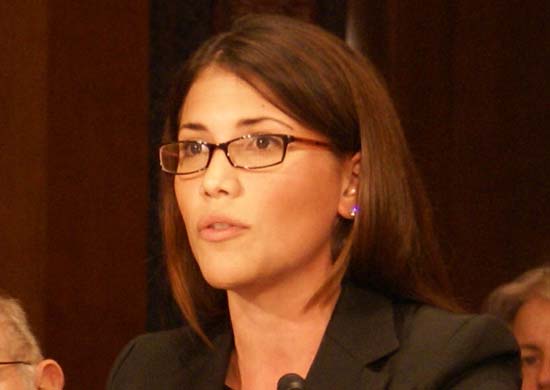
On the medical screening process, applicants like myself, who come from low-income families and are Full-time students and workers, have more challenges ahead. My personal experience with the medical screening process presents serious difficulties due my economic status. My Health Insurance (Preferred Health) does not include coverage in the United States. This means that I will have to travel back home to finish my medical screening process between my summer and fall internships in the United States Census Bureau. While discussing this issue with my recruiter, I was informed that the maximum of reimbursement fees the Agency gives to Females under 40 years of age is $165. The most cost-effective way for me to fly back to Puerto Rico would be to travel to New York by bus (that would be $35) and fly roundtrip from JFK to LMM Airport for $322. The travel costs I accrue to meet the guidelines could be just the beginning, as the reimbursement fees may not cover the costs I incur during the Physical Examination, the Dental Examination, the Eyeglass Prescriptions and Measurements (plus the second pair of glasses required by the Agency)
This means that I anticipate spending more on the medical screening process of the application than what the Agency will currently be able to reimburse. This is a huge economic sacrifice for a person like myself, and makes it more of an impediment for young people that are already struggling to get the basic needs for their lives. I support sections of this bill that will guarantee full reimbursement for medical tests required by the Peace Corps of applicants and establishment of a process for applicants and other interested parties to propose changes to the Medical Screening Guidelines.
Read the rest of this statement in more detail.
Links to Related Topics (Tags):
Headlines: July, 2007; RPCV Chris Dodd (Dominican Republic); Figures; Peace Corps Dominican Republic; Directory of Dominican Republic RPCVs; Messages and Announcements for Dominican Republic RPCVs; Congress; Legislation; Connecticut; Peace Corps Bibliography; Peace Corps Countries of Service; Peace Corps History; Bulletin Board; Recent Peace Corps News
When this story was posted in July 2007, this was on the front page of PCOL:





Peace Corps Online The Independent News Forum serving Returned Peace Corps Volunteers
 | Dodd issues call for National Service
Standing on the steps of the Nashua City Hall where JFK kicked off his campaign in 1960, Presidential Candidate Chris Dodd issued a call for National Service. "Like thousands of others, I heard President Kennedy's words and a short time later joined the Peace Corps." Dodd said his goal is to see 40 million people volunteering in some form or another by 2020. "We have an appetite for service. We like to be asked to roll up our sleeves and make a contribution," he said. "We haven't been asked in a long time." |
 | Public diplomacy rests on sound public policy
When President Kennedy spoke of "a long twilight struggle," and challenged the country to "ask not," he signaled that the Cold War was the challenge and framework defining US foreign policy. The current challenge is not a struggle against a totalitarian foe. It is not a battle against an enemy called "Islamofascism." From these false assumptions flow false choices, including the false choice between law enforcement and war. Instead, law enforcement and military force both must be essential instruments, along with diplomacy, including public diplomacy. But public diplomacy rests on policy, and to begin with, the policy must be sound. Read more. |
 | Ambassador revokes clearance for PC Director
A post made on PCOL from volunteers in Tanzania alleges that Ambassador Retzer has acted improperly in revoking the country clearance of Country Director Christine Djondo. A statement from Peace Corps' Press Office says that the Peace Corps strongly disagrees with the ambassador’s decision. On June 8 the White House announced that Retzer is being replaced as Ambassador. Latest: Senator Dodd has placed a hold on Mark Green's nomination to be Ambassador to Tanzania. |
 | Peace Corps Funnies
A PCV writing home? Our editor hard at work? Take a look at our Peace Corps Funnies and Peace Corps Cartoons and see why Peace Corps Volunteers say that sometimes a touch of levity can be one of the best ways of dealing with frustrations in the field. Read what RPCVs say about the lighter side of life in the Peace Corps and see why irreverent observations can often contain more than a grain of truth. We'll supply the photos. You supply the captions. |
 | PCOL serves half million
PCOL's readership for April exceeded 525,000 visitors - a 50% increase over last year. This year also saw the advent of a new web site: Peace Corps News that together with the Peace Corps Library and History of the Peace Corps serve 17,000 RPCVs, Staff, and Friends of the Peace Corps every day. Thanks for making PCOL your source of news for the Peace Corps community. Read more. |
 | Suspect confesses in murder of PCV
Search parties in the Philippines discovered the body of Peace Corps Volunteer Julia Campbell near Barangay Batad, Banaue town on April 17. Director Tschetter expressed his sorrow at learning the news. “Julia was a proud member of the Peace Corps family, and she contributed greatly to the lives of Filipino citizens in Donsol, Sorsogon, where she served,” he said. Latest: Suspect Juan Duntugan admits to killing Campbell. Leave your thoughts and condolences . |
 | Warren Wiggins: Architect of the Peace Corps
Warren Wiggins, who died at 84 on April 13, became one of the architects of the Peace Corps in 1961 when his paper, "A Towering Task," landed in the lap of Sargent Shriver, just as Shriver was trying to figure out how to turn the Peace Corps into a working federal department. Shriver was electrified by the treatise, which urged the agency to act boldly. Read Mr. Wiggins' obituary and biography, take an opportunity to read the original document that shaped the Peace Corps' mission, and read John Coyne's special issue commemorating "A Towering Task." |
 | Chris Dodd's Vision for the Peace Corps
Senator Chris Dodd (RPCV Dominican Republic) spoke at the ceremony for this year's Shriver Award and elaborated on issues he raised at Ron Tschetter's hearings. Dodd plans to introduce legislation that may include: setting aside a portion of Peace Corps' budget as seed money for demonstration projects and third goal activities (after adjusting the annual budget upward to accommodate the added expense), more volunteer input into Peace Corps operations, removing medical, healthcare and tax impediments that discourage older volunteers, providing more transparency in the medical screening and appeals process, a more comprehensive health safety net for recently-returned volunteers, and authorizing volunteers to accept, under certain circumstances, private donations to support their development projects. He plans to circulate draft legislation for review to members of the Peace Corps community and welcomes RPCV comments. |
 | He served with honor
One year ago, Staff Sgt. Robert J. Paul (RPCV Kenya) carried on an ongoing dialog on this website on the military and the peace corps and his role as a member of a Civil Affairs Team in Iraq and Afghanistan. We have just received a report that Sargeant Paul has been killed by a car bomb in Kabul. Words cannot express our feeling of loss for this tremendous injury to the entire RPCV community. Most of us didn't know him personally but we knew him from his words. Our thoughts go out to his family and friends. He was one of ours and he served with honor. |
Read the stories and leave your comments.

Some postings on Peace Corps Online are provided to the individual members of this group without permission of the copyright owner for the non-profit purposes of criticism, comment, education, scholarship, and research under the "Fair Use" provisions of U.S. Government copyright laws and they may not be distributed further without permission of the copyright owner. Peace Corps Online does not vouch for the accuracy of the content of the postings, which is the sole responsibility of the copyright holder.
Story Source: Senate Foreign Relations Committee
This story has been posted in the following forums: : Headlines; Figures; COS - Dominican Republic; Congress; Legislation
PCOL38389
06
All of this is powerful testimony. It provides an overview of Peace Corps operations. The legislation appears to be comprehensive and the few concerns expressed, legtimate differences of opinion. Thank you for the extraordinary work which has gone into the testimoney from RPCVs and serving PCVs and Peace Corps staff. Thank you, PCOL, for coverage of these legislative hearings.























